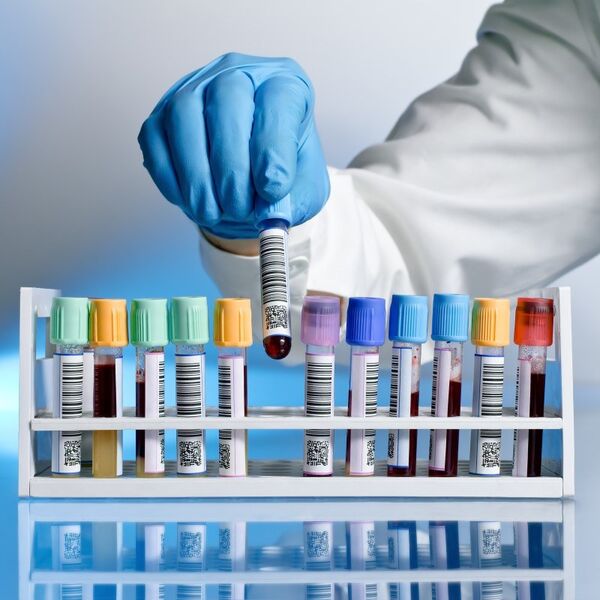Genomic Medicine
We're working in partnership with NHS England and the NHS Genomic Medicine Service to develop a personalised and predictive healthcare solution through the use of genomics.

The NHS Genomic Medicine Service
The NHS Genomic Medicine Service (NHS GMS) is the arm of the NHS working to enable the NHS to harness the power of genomic technology and science to improve the health of our population.
The aims of the NHS GMS are to provide:
Consistent and equitable care for the country’s 55 million people
A single National Genomic Test Directory covering use of all genomic technologies from single genes to whole genome sequencing
A national genomic knowledge base to provide real world data to inform academic and industry research and development

How is whole genome sequencing data gathered in the NHS GMS?
If you're a patient of the NHS Genomic Medicine Service, you may be offered whole genome sequencing as part of your clinical care. You will be asked if you want to donate genome sequence and health data, and/or your sample (blood/saliva/tissue, etc.), for research.
If you agree, your samples will be stored securely and your data will be added to the National Genomic Research Library. This is a secure national database of de-identified genomic and health data managed by Genomics England. NHS England, on behalf of the hospitals (Trusts) that provided your genomic test, will allow Genomics England to access your identified data to link you to the National Genomic Research Library.
Approved researchers can use the samples and data to study diseases and look for new treatments. Their research might help you and others now or in the future.

Why me?
As part of your care, or care of your relative, you have been offered a type of genomic testing through the NHS Genomic Medicine Service which involves whole genome sequencing. This means every letter of the 3 billion letters in your genome will be ‘read’ to create your unique genetic sequence. As well as being used for your clinical care, the data from your whole genome sequence is also useful for research.
Get answers
Your involvement in the National Genomic Research Library may provide an opportunity for you to get answers which could lead to a diagnosis, access to a different treatment, or an opportunity to participate in clinical trials.
Help others
Involvement may help people with similar conditions to you as well as helping people with a variety of other conditions. It could mean getting answers for you or others now or in the future.
Be part of something big
You will be part of a new national approach working with the NHS to bring together health data to help patients get better care.
Make a lasting impact
By agreeing to donate your samples, and health and genomic data, you can make an impact for you, your family, and for future generations. The more people take part, the more likely it is that we will all have improved health.
What is the National Genomic Research Library?
It's a resource of de-identified samples, genomic data, and other associated health data that approved researchers can access via our secure Research Environment.
The National Genomic Research Library is a partnership between NHS England and Genomics England. The offer to take part in research is an integral part of your clinical care.
Researchers who use the National Genomic Research Library can learn more about everyone’s health by looking for patterns in the de-identified data of thousands of patients.
Being able to compare all de-identified patient data in one place provides researchers with an opportunity to better understand diseases, develop new treatments and can lead to new diagnoses.

Are you part of the healthcare workforce?
Learn more with Health Education England's Genomics Education Programme, which delivers genomics education, training, and experience for the healthcare workforce.
The aim is to help prepare current and future NHS professionals to make the best use of genomics in their practice.




